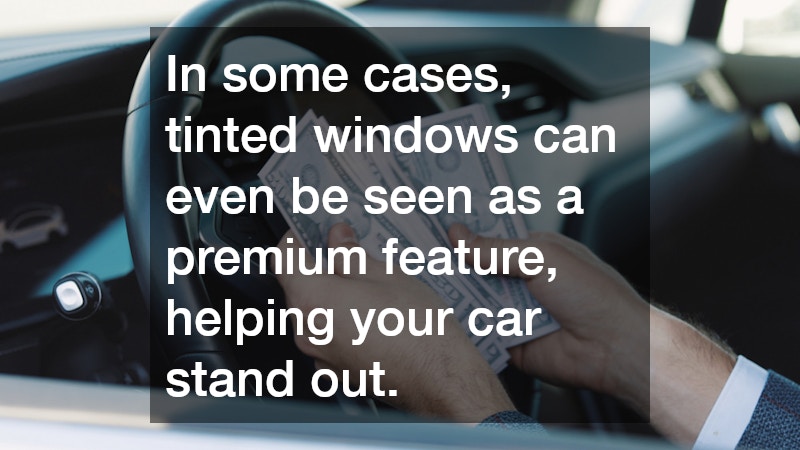Window tinting for cars has become a popular choice among automobile enthusiasts and everyday drivers alike. While some people are initially drawn to it for its sleek and stylish look, the practice offers far more than cosmetic appeal. From protecting your vehicle’s interior to improving driving safety and comfort, tinted windows serve a range of practical purposes. This article explores the many advantages of tinting your car windows, addressing common questions and concerns to help you understand why it has become such a valued upgrade.
How Does Window Tinting Improve Car Interior Protection?
Prevention of Upholstery Fading
One of the most significant threats to a car’s interior is constant exposure to sunlight. Over time, ultraviolet (UV) rays penetrate through the glass, causing upholstery and dashboards to fade or crack.
This damage not only diminishes the vehicle’s aesthetic appeal but can also lead to costly repairs or replacements. With quality tinting, the glass is treated with a protective layer that blocks a high percentage of UV rays, thereby extending the life of fabrics, leather seats, and interior trim. By keeping colors vibrant and surfaces intact, window tinting effectively shields your car’s interior from premature wear.
Reduction in Sun Damage
Beyond fading upholstery, unfiltered sunlight can also weaken plastic and vinyl components, making them brittle and prone to damage. Cracks on dashboards, warping panels, or discoloration on the steering wheel are common signs of prolonged sun exposure. Tinting works as a barrier that reduces direct contact with harmful rays, lowering the risk of such deterioration. By providing an extra layer of defense, tinted windows help preserve both the look and functionality of your car’s interior for years to come.
Does Window Tinting Enhance Privacy and Security?
Increased Privacy for Passengers
Many drivers value privacy while on the road, whether commuting through busy city streets or parked in public areas. Tinted windows prevent outsiders from easily seeing into your vehicle, offering peace of mind for both drivers and passengers. Families with children or individuals who frequently carry valuables especially benefit from this feature, as it ensures a more private and comfortable driving experience. The level of tint can be adjusted according to state regulations, allowing you to strike the perfect balance between visibility and discretion.
Protection Against Theft
A less obvious but equally important advantage of tinted windows is enhanced security. Thieves are often opportunistic, targeting cars where valuables are clearly visible. By reducing the transparency of your windows, tinting makes it harder for potential criminals to identify whether anything worth stealing is inside. In some cases, tinting films can even reinforce the glass, making it more difficult to shatter and thereby adding another deterrent against break-ins.
Can Window Tinting Reduce Heat and Glare Inside the Car?
Heat Reduction Benefits
Driving in the summer sun often feels like stepping into an oven, especially if your car has been parked outdoors for a while. Tinting significantly reduces the amount of solar heat entering the cabin, helping maintain a cooler environment. Not only does this improve comfort for passengers, but it also reduces the strain on your air conditioning system. As a result, your car requires less fuel to maintain a pleasant temperature, indirectly improving overall efficiency.
Glare Reduction for a Safer Drive
Another underrated benefit of tinting is its ability to minimize glare from sunlight, headlights, and reflective surfaces. Glare can cause eye strain and even create dangerous moments of impaired vision while driving. By softening the intensity of incoming light, tinted windows help ensure a clearer, more comfortable view of the road. This leads to a safer driving experience, particularly during sunrise, sunset, or nighttime when glare is most pronounced.
What Are the Financial Advantages of Window Tinting?
Long-Term Cost Savings
While the initial installation of tinted windows requires an investment, the long-term benefits often outweigh the expense. Protecting the interior from fading and cracking saves money on upholstery repairs and replacements. Reducing heat inside the car lowers fuel consumption due to less reliance on air conditioning. Over time, these savings accumulate, making window tinting a cost-effective decision for car owners seeking both comfort and financial efficiency.
Increased Resale Value
A well-maintained car always attracts higher offers in the resale market, and tinted windows can contribute to that appeal. Buyers appreciate vehicles with interiors that look newer and well-preserved, and the added comfort of heat reduction and privacy can further enhance interest. In some cases, tinted windows can even be seen as a premium feature, helping your car stand out among similar models.
Incorporating window tinting into your car’s features offers manifold benefits, from protecting the vehicle’s interior to enhancing comfort and privacy. Beyond its stylish appearance, it serves as a shield against UV rays, deters theft, improves driving safety, and contributes to long-term savings. Whether your priority is aesthetics, comfort, or practicality, window tinting proves itself to be a worthy investment. By understanding its wide-ranging advantages, car owners can make an informed decision that not only enhances the driving experience but also safeguards their vehicle for years to come.





